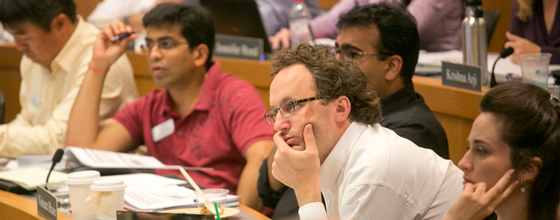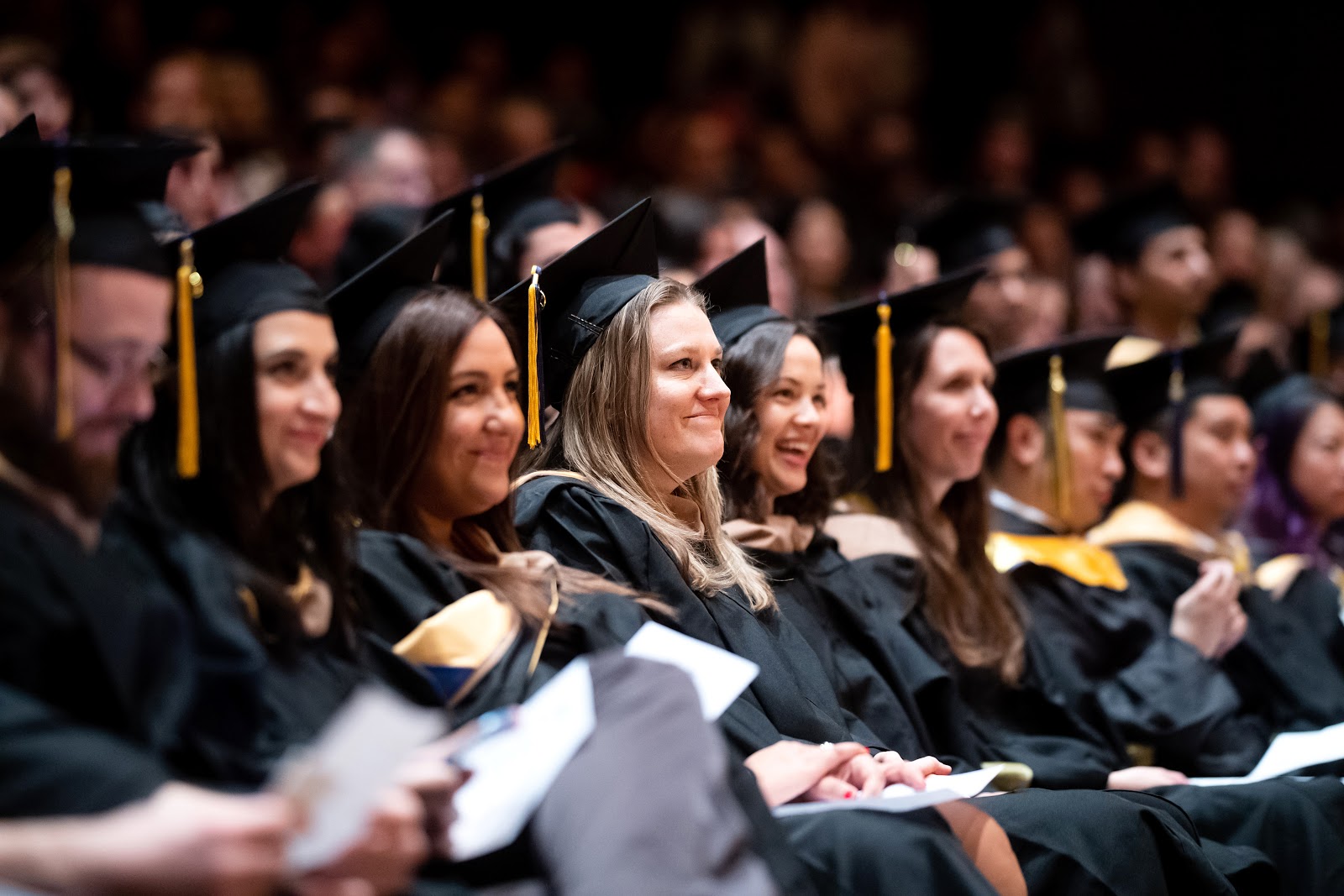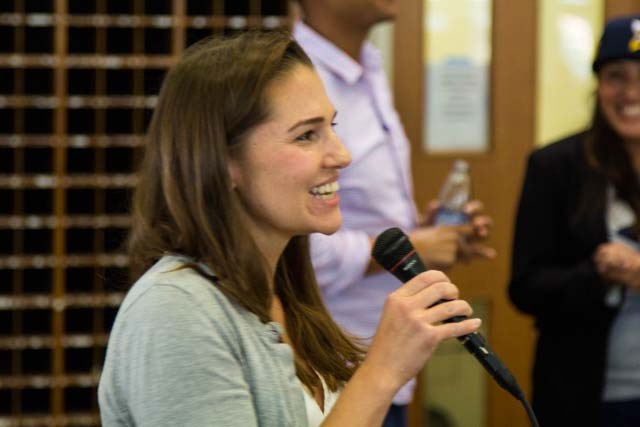Sticker shock is not uncommon when people start researching executive MBA programs. But on his first day of class, Greg Durkin, EMBA 14, saw concerns over cost evaporate when his classmates “were no longer abstract, but were interesting and diverse individuals I would gain a lot from being around. From there, other things I hadn’t considered got added into the equation, including negotiation skills, which have a clear financial return, and less tangible things like leadership effectiveness.”
Below, students talk about how they financed their EMBA studies, and share advice on financing your executive MBA.
Durkin was one of five recipients of the Executive MBA Fellowship, offered each year to ensure a broad range of diversity in each class, including the industries in which students work. As vice president of Theatrical Research at Warner Bros. Pictures at the time, Durkin brought a bit of Hollywood to his class.
“Some students have the cash in hand to pay for the program, but they are rare,” Durkin says. “Most of us have to assess the investment and our ability to pay. I greatly appreciate the financial assistance of the Fellowship, and the school’s commitment to diversity.”
Applying for a Fellowship involves simply answering an essay question on the application.
The Financial Aid Office also makes available information about outside scholarships.
Loans
“My gut feeling is that you get what you pay for in life, only the Berkeley MBA for Executives Program actually delivers more than some higher-priced programs,” says Alec Randall, EMBA 14, who was a senior manager at Charles Schwab at the time. He cites the on-campus experience, top-notch faculty, innovative environment, and networking opportunities as examples.
Randall financed his degree largely with loans from federal and private lenders and drew on his personal savings and employee stock ownership plan at work. “The Financial Aid Office staff is helpful, trustworthy, and very well-informed. They helped me navigate the loan application process, especially the timelines that trip you up if you’re not careful.”
Veteran Benefits
An MBA is the perfect way for armed forces veterans to gain the business skills and insights needed to complement their well-honed leadership skills as they transition into senior positions in the corporate sphere. The Post-9/11 G.I. Bill offers generous financial support for education at any level.
“When I realized the 9/11 G.I. Bill would cover $17,500/year at a private university or 100% of the in-state tuition at a public university, it wasn’t much of a leap to decide that Berkeley Haas—a school with an unmatched reputation—was the way to go,” says Tony Stobbe, EMBA 14, a former commissioned officer in the U.S. Coast Guard, and now a director at Tesla. His advice to other vets? “Leverage your G.I. benefits as much as you can. Go to the best school you can and get the maximum benefit from your service and your education. You’ve earned it.”
Employer Assistance
Many employers recognize the benefit they reap when employees develop their leadership skills and business acumen through advanced degrees.
Neal Fornaciari, EMBA 14, who was a senior manager at Sandia National Labs at the time, sold his employer on the idea of funding his EMBA studies. “My advice is to use the business skills you already have and the expertise available at Haas to make a valid cost-benefit argument to your employer and complete a strong application. You and your employer will benefit.”
Tina Shinnick, EMBA 14, now executive director at the Hamilton, Brook, Smith & Reynolds, P.C. law firm, got that kind of immediate benefit from one “simple, brilliant tool” that she learned in Operations class and put to use at work. “That alone was worth the entire cost of tuition,” she says.
Editor's note: This post was originally published in 2014 and has been updated for accuracy and comprehensiveness.








